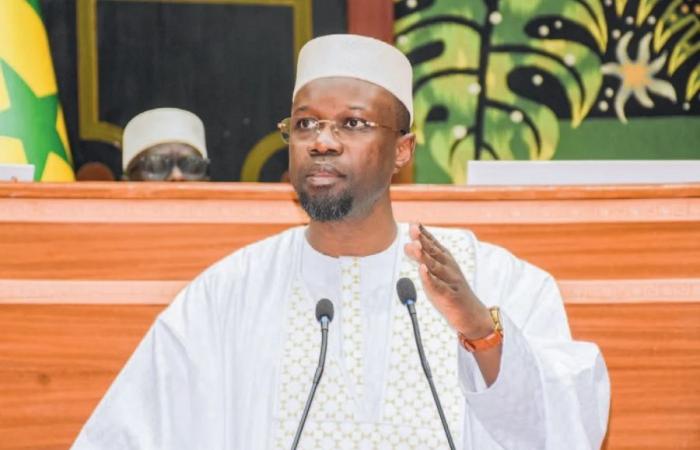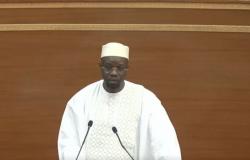In a context of global challenges and societal transformations, five Prime Ministers have spoken, since 2012, on the major strategic directions for the development of the country. The speeches of Abdoul Mbaye, Aminata Touré, Boun Abdallah Dionne, Amadou Ba and yesterday that of Ousmane Sonko, reflect shared visions that are convergent and complementary on economic, social and institutional priorities. These interventions highlight cross-cutting themes centered on social inclusion, economic recovery and infrastructure modernization.
SOCIAL INCLUSION: A COMMON PRIORITY
All the speakers underlined in their DPG the importance of reducing social inequalities by relying on innovative programs. The Family Security Exchange, put forward by Aminata Touré, is an example, providing financial support to the most vulnerable households. For his part, Amadou Ba promoted Universal Health Coverage extended to a large part of the population, accompanied by the construction of modern hospital establishments. Abdoul Mbaye, for his part, insisted on social justice and equity in access to public resources, calling for sober and transparent governance. Ousmane Sonko is in the same range. Boun Abdallah Dionne recalled efforts to strengthen social cohesion through the expansion of social programs and support for women and young people. They are all banking on improving education, health and social services and on social cohesion.
EDUCATION AND EMPLOYMENT: THE PILLARS OF TRANSFORMATION
Education and employment take center stage in the visions of all five personalities. All criticized the inadequacy of the education system and proposed structural reforms to align training with the needs of the national economy. Boun Abdallah Dionne and Ousmane Sonko emphasized massive investments in educational infrastructure to prepare young people for the needs of the market. Aminata Touré, as part of the “Yoonu Yokkute” program, spoke of the construction of hundreds of schools and the opening of vocational high schools. Amadou Ba introduced the “Xëyu ndaw ñi” program, mobilizing 450 billion FCFA to promote youth employment and entrepreneurship.
GOVERNANCE AND RULE OF LAW
The five speeches emphasize the need to strengthen the rule of law, faith in justice, and improvement of governance. Aminata Touré, Abdoul Mbaye, Ousmane Sonko have all called for transparent management of public resources and increased decentralization. Boun Abdallah Dionne spoke of the territorialization of public policies to reduce regional disparities. Amadou Ba and Ousmane Sonko put forward tax reforms to increase national resources while modernizing public administration.
AGRICULTURE AND FOOD SECURITY
Agriculture, the pillar of the Senegalese economy, is the subject of ambitious strategies. Aminata Touré presented the community agricultural estates program, aiming to create 50,000 jobs. Amadou Ba put forward projects to double agricultural production, particularly rice, in order to achieve food self-sufficiency. Ousmane Sonko campaigns for food sovereignty. Abdoul Mbaye highlighted the structural weaknesses of the sector and proposed solutions to improve productivity and secure farmers’ income.
A COMMON AMBITION: EMERGENCE AND PROSPERITY
These speeches, given by personalities from different sides, testify to a shared desire to lead Senegal towards economic and social emergence. By integrating inclusive policies and structural reforms, the five leaders are committed, each in their own right, to meeting the expectations of a population seeking justice, transparency and well-being. The path towards an emerging or sovereign Senegal, based on a collaborative vision, aligned with the aspirations of citizens and the requirements of sustainable development. On paper, speeches have the power to transcend, to inspire minds and revive hope. Through carefully chosen words, they paint a bright future, where unity, justice and prosperity reign supreme. But, behind the eloquence, there is often a much more complex reality: that of execution. Transforming noble ideas into concrete actions is fraught with pitfalls. Resources may be insufficient, internal resistance numerous, and compromises inevitable. Divergent interests often slow down collective dynamics, while the unpredictability of events makes it difficult to respect initial promises. Thus, a fine speech can come up against administrative slowness, political disagreements, or an unfavorable economic reality. This contrast between ideal and practice highlights a universal truth: if words inspire, it is actions that validate them. Executing a vision requires not only willpower, but also rigorous strategy, constant adaptation, and a collective effort to overcome unforeseen obstacles.






